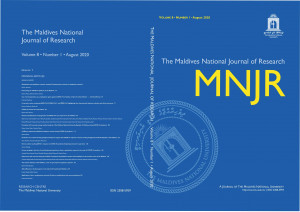The design of a four-seat reverse delta WIG craft
DOI:
https://doi.org/10.62338/8nsr3z50Keywords:
Wing-in-ground effect craft, WIG, ekranoplan, aircraft design, rc models, airfish, Airfisch, ground effect, stability, reverse delta, Lippisch. Bavar-2Abstract
A 4-seat Wing in Ground effect craft was designed informed by an extensive literature review of past efforts in WIG craft engineering. Several designs were considered during concept evolution. The review identified a reverse delta configuration as best meeting the design requirements. A one-fifth scale of the craft was modelled using blue polystyrene foam and flown using an electric motor in pusher configuration. The flight test verified the design concept, and the effectiveness of the design. A key consideration for effective flight is undercambered airfoils to reduce take-off distance. The model was flyable in sea-state 1. It is estimated the full-size craft can get airborne in sea-state 2. A full-scale model is envisaged.
References
Alan, K. F. F. H. (2013). Ground effect on a lift generating body. Unpublished Masters thesis, National University of Singapore. Downloaded from http://www.scholarbank.nus.edu.sg/bitstream/handle/10635/47351/KOHFH%202013.pdf?sequence=1
Chris B. (July 5, 2015). Iran’s Building a New Flying Boat. Downloaded from http://www.offiziere.ch/?p=21490
Cole, T. (1989). License to fly. Popular Mechanics, July 1989, p. 57.
Gudmundsson, S (2014): General aviation aircraft design:Applied methods and procedures. Oxford:Elsevier. The relevant appendix may be downloaded from http://booksite.elsevier.com/9780123973085/content/APP-C3-DESIGN_OF_SEAPLANES.pdf
Halloran, M., & Sean O’Meara, S. (1999). Wing in ground effect craft review. Defence Science and Technology Organization, Melbourne.
Hameed, H. (2016). Ekranoplans: An introduction. Downloaded from http://www.hassanhameed.com/?page_id=3714
Hillabone, A. (2012) The hovercraft: A history. Gloucestershrie, UK: The History Press.
Hugli, W. C. & Axt, W.C. (1951). Hydrodynamic Investigation of a series of Hull models suitable for small flying boats and amphibians (NACA Technical Note-2503). Washington: NACA
IMO. (2002). Interim guidelines for Wing-in-Ground (WIG) craft. MSC/Circ.1054. 16 December 2002/ London: IMO
Kong, C., Park, H.,& Kang, K. (2008). A study on conceptual structural design of wing for a small scale WIG craft using carbon/epoxy and foam sandwich composite structure. Advanced Composite Materials, 17, 353–358.
Moore, N., Wilson, P.A., & Peters, A.J. (2002). An investigation into wing in ground effect aerofoil geometry. In, RTO-MP-095. RTO SCI Symposium on Challenges in Dynamics, System Identification, Control and Handling Qualities for Land, Air, Sea and Space Vehicles Paris, France, NATO RTO, 11-[20pp].
National Bureau of Statistics. (2016). Maldives Key Indicators, 2003. Downloaded from http://statisticsmaldives.gov.mv/nbs/wp-content/uploads/2015/09/keyindicators-2003.pdf
Roskam, J. (1985). Airplane design, Part I: Preliminary sizing of airplanes. Lawrence, KS, USA: Roskam Aviation and Engineering Corporation.
Rozhdestvensky, K.V. (2000). Aerodynamics of a lifting system in extreme ground effect. Berlin:Springer-Verlag
Rozhdestvensky, K.V. (2006). Wing-in-ground effect vehicles. Progress in Aerospace Sciences, 42 (3), 183–211. http://dx.doi.org/10.1016/j.paerosci.2006.10.001
Russian Lifeboats can fly. New Scientist. 689–690, March 14, 1974
Sadraey, M.H. (2012). Aircraft design: A systems engineering approach. West Sussex: Wiley
Sammyanddaiana. (November 10, 2012). Iran launches new combat flying boat [Video file]. Retrieved from https://www.youtube.com/watch?v=QjgvY4SnHKM
Smith, A.G., White, H.G. (1954). A review of porpoising instability of seaplanes. Aeronautical Research Council. London: Her Majesty’s Stationery Office
Stealth flying boats join IRGC fleet. (2010). Dated Tue Sep 28, 2010 4:59PM. Downloaded from http://www.presstv.ir/detail/144395.html
Syamsuar, S, Djatmiko, E.B., Erwandib, Mujahid. A.S., & Subchan. (2016). The hydroplaning simulation of flying boat remote control model. Jurnal Teknologi (Sciences & Engineering) 78 (6), 191–197.
Weaks,G. (2012). Scale Weight effect on Flight Performance. Downloaded from http://geodza.com/PMAC_Web_2012_live/In_The_Shop_files/Weight%20and%20flight%20performance%20of%20scale%20models%20by%20Gary%20Weaks.pdf
WIG aircraft. (2013). WIG aircraft – a new joint project between Russia and China. Downloaded from http://voiceofrussia.com/2013_04_26/Wig-aircraft-a-new-joint-project-between-Russia-and-China/
Yun, L., Bliault, A, & Doo, J. (2010). WIG craft and Ekranoplan: Ground Effect Craft Technology. New York: Springer.
Грунин ЭСКА-1 (n.d.) Retrieved from http://airspot.ru/catalogue/item/grunin-eska-1 on November 6, 2014



